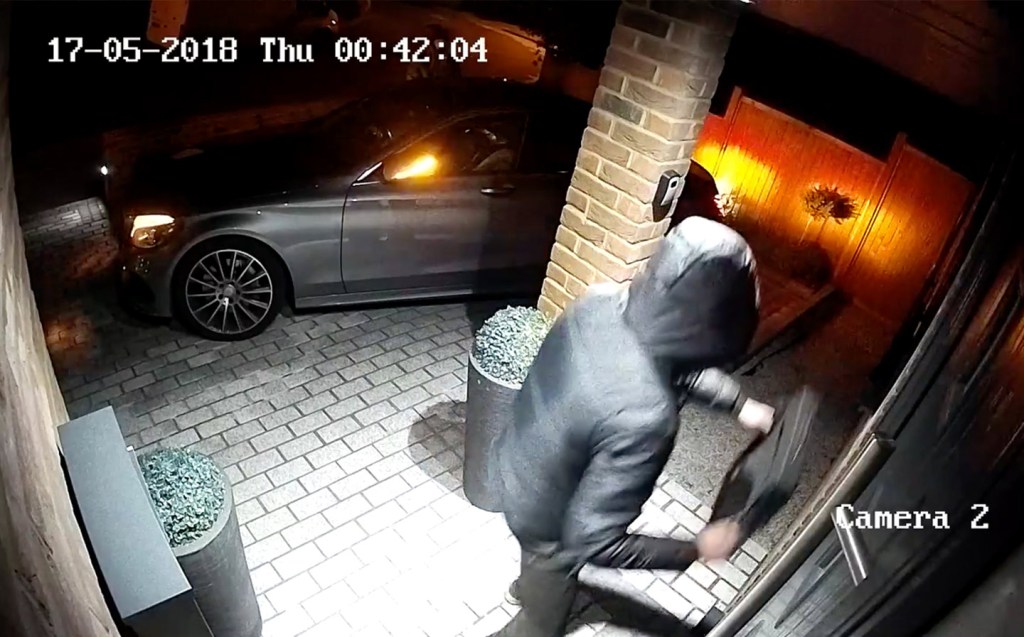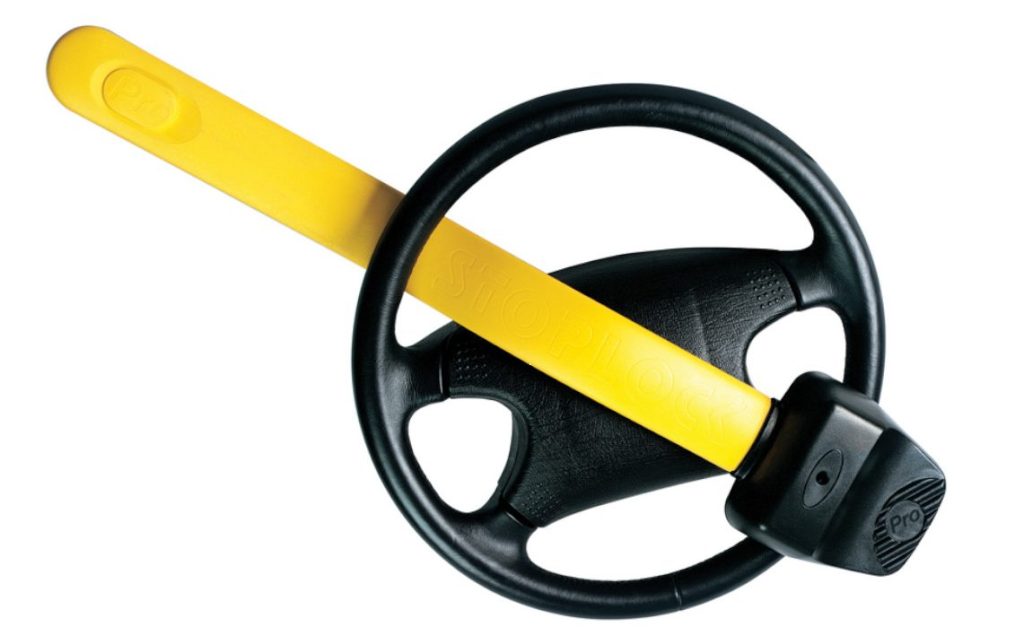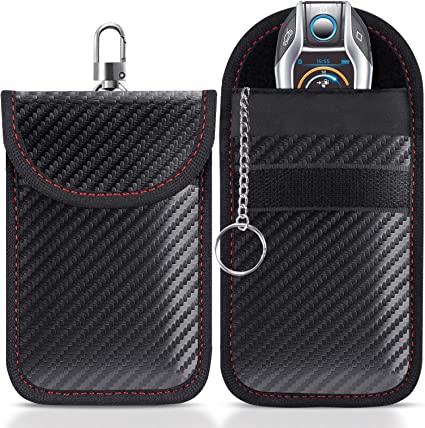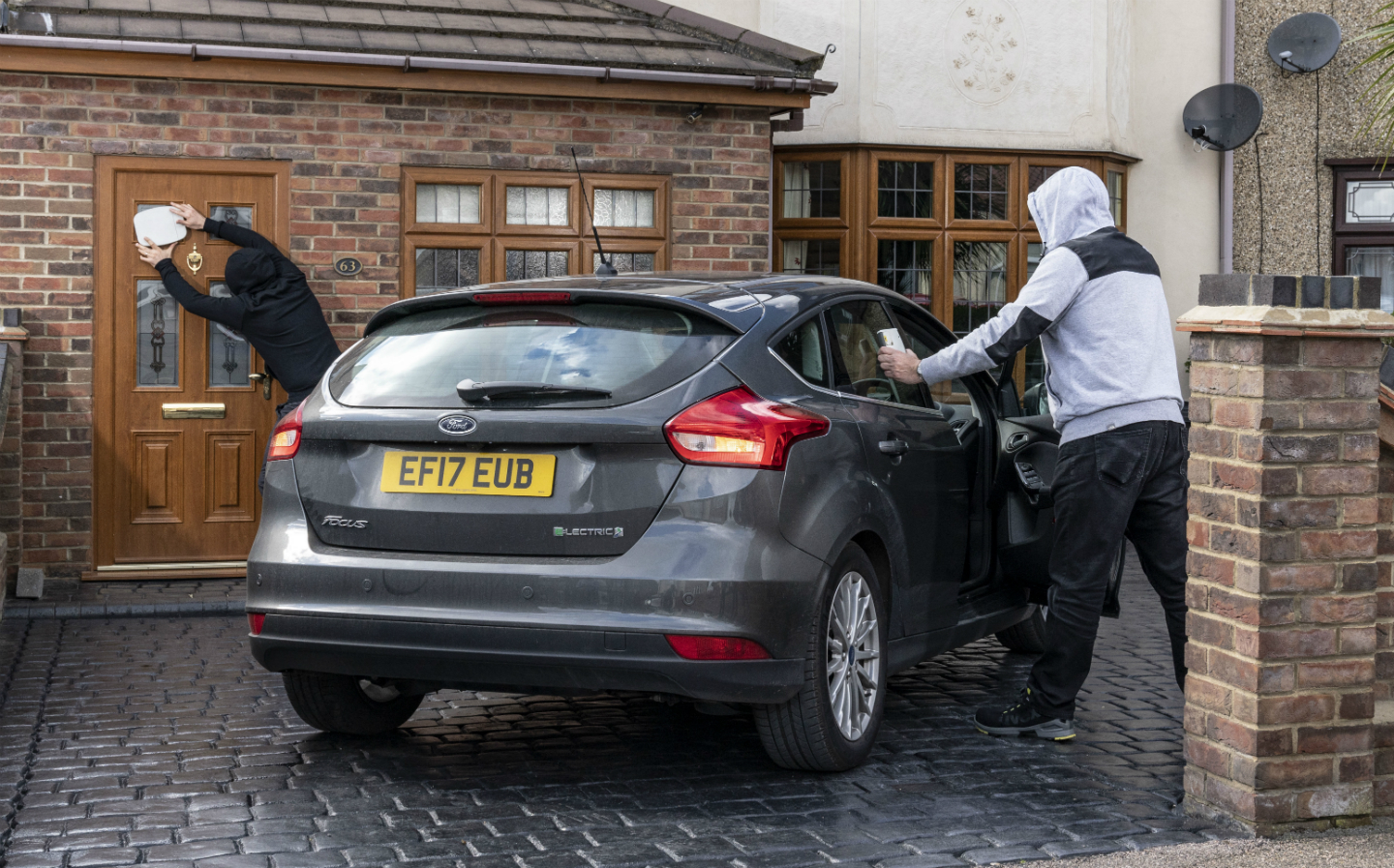Car thefts 'in danger of getting out of control' as cases soar 25 per cent in a year
Some cars can be stolen within 90 seconds
The AA has said car thefts are in danger of getting out of control after cases increased by 25 per cent in England and Wales last year, according to the Office of National Statistics.
While the figures were influenced by the third national lockdown, from January to March 2021, during which crime rates fell generally, more than 130,000 vehicle thefts were recorded in 2022 — up a quarter compared with the year before.
Tough economic times along with record prices for used cars and parts, both in the UK and abroad, are contributing to the glut of thefts, according to experts. However criminals are using high tech methods — with devices bought online at little expense — to exploit weaknesses in keyless cars’ computer systems, allowing the vehicles to be stolen in as little as 90 seconds.
“These figures are in danger of getting out of control,” said Gus Park, managing director of AA Insurance Services. “If left to spiral further, there will be big cost implications in terms of the impact to wider society, let alone the price policyholders pay.”
Alex Borgonis, the underwriting director of LV= General Insurance, blamed the rise on a number of factors: “We’re seeing a continued rise in car theft and unfortunately this is likely to worsen given the economic challenges we’re facing, the cost-of-living crisis and vehicle supply chain issues.
“Both car parts and vehicles themselves are in extremely high demand and it’s likely these are being shipped abroad or sold in the UK to make a profit.
“I’d encourage drivers to think about steps they can take to mitigate the risks.”
Car thieves have several high-tech methods to call upon
Car thieves are utilising methods such as “signal relaying”, where transmitters are placed close to the owner’s house or pocket, capturing the signal of the genuine key fob and sending it to another device held by an accomplice near the car. This tricks the vehicle into believing the key is within range, allowing the criminals to open its doors. Once inside the car, they can replicate the signal to start the engine and drive away.
Other technique is “signal jamming”, which involves criminals matching the radio frequency of key fobs. This blocks the signal from the genuine key fob reaching the car – meaning that when the owner presses the lock button, the car remains unlocked – allowing thieves to get in right away. From there they can access the car’s computer port and hack the system to start the engine or even create a duplicate key.

Often, the hardware used is concealed inside Bluetooth speakers and older mobile phones, according to the latest reports.
The sale of these devices online is widespread (a wide range is available, sometimes tailored for specific makes and models) with prices starting at only £1,300.
A less common method is “app hacking”. As more cars now have the ability to connect with their owners’ smartphones, thieves are stealing or hacking drivers’ phones, accessing the username and password needed to connect to a car’s user interface and enabling them to unlock the car.
Owners should resort to old tech
Car makers are addressing the issue with key fobs that become dormant when left motionless for a period of time, and some claim to be adding extra layers of sophistication to vehicle security software.
However car security experts have recommended that drivers use steering wheel locks — a common security feature before keyless entry and start vehicles arrived — to deter thieves from targeting their cars.

Visual deterrents can also include external wheel locks, making it impossible to move the car, or pedal locks, though these can often be hard to spot from the outside.
Signal blockers in the form of metal-lined containers or padded wallets are also becoming a popular anti-theft device, as they can override signals from thieves attempting to intercept the signal from a key fob. Pocket-sized Faraday pouches are very effective at resisting these transmissions.

Drivers are encouraged to be more attentive when locking their cars, too — by listening for the clunking sound of central locking. Some cars flash their indicator lights or fold their mirrors in when locking — if this fails to happen, it could be the result of the key fob’s signal being interfered with.
Tracking devices also come recommended, as they can alert the driver the moment their car is stolen and can also send a warning to the police. Premium devices operate at very high frequencies, making it almost impossible for thieves to escape, though less expensive systems can also be effective.
On what should be done about the soaring theft figures, Park said: “We urge police chiefs and crime commissioners across the country to create an action plan to crack the case.
“Unfortunately, there is no one thing that can guarantee keeping your car safe from theft, but just making it a bit harder for the thieves can make it less likely that they’ll go for your car.”
Related articles
- After reading about the rise in keyless car thefts in Britain, you may want to read that police have warned drivers to take precautions as keyless car theft rise
- Find out how Ford is developing tech to prevent deaths in hot cars
- Read about where the top 20 locations for car theft are in the UK
Latest articles
- Seven great automotive events to visit this summer, from F1 to art and champagne
- Watch new Porsche 911 GT3 smash Nürburgring record for manual cars
- Skoda Elroq 2025 review: Czech carmaker can’t seem to miss with its electric family cars
- Five best electric cars to buy in 2025
- Should I buy a diesel car in 2025?
- F1 2025 calendar and race reports: The new Formula One season as it happens
- Zeekr 7X AWD 2025 review: A fast, spacious and high tech premium SUV — but someone call the chassis chief
- Denza Z9GT 2025 review: Flawed but sleek 1,062bhp shooting brake from BYD’s luxury arm
- Extended test: 2024 Renault Scenic E-Tech review














